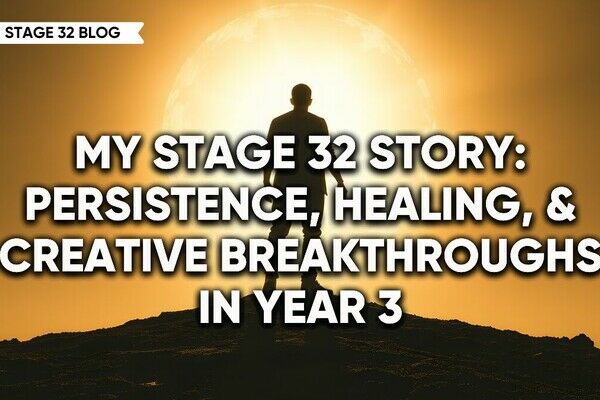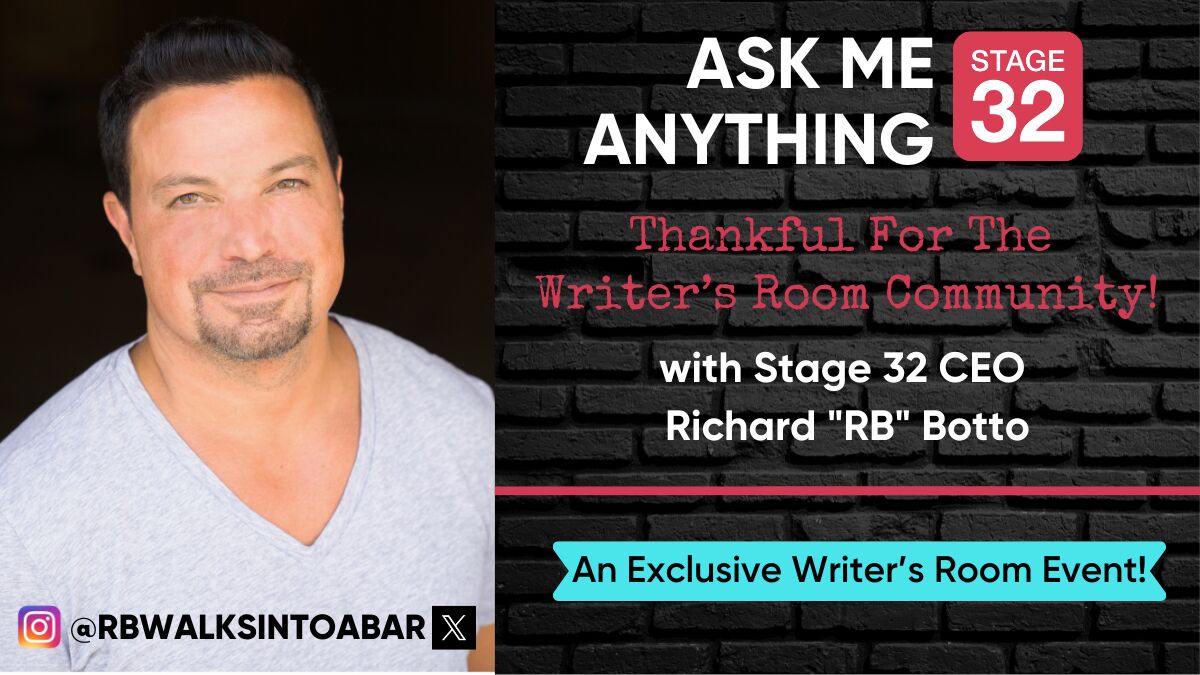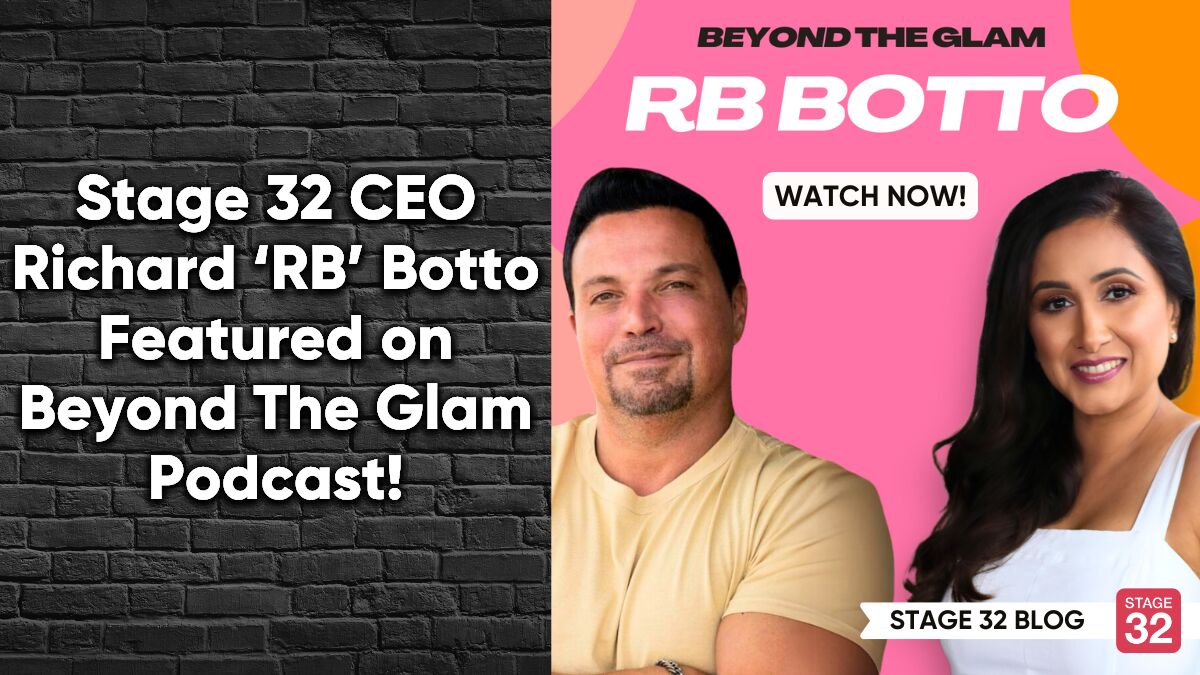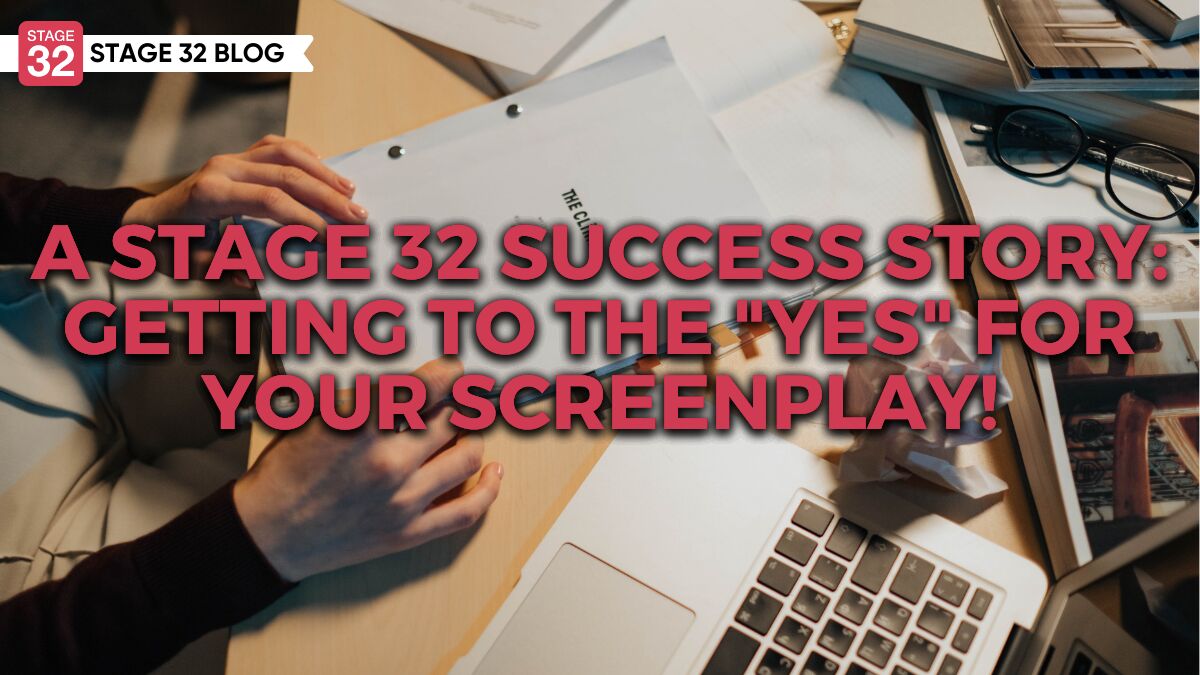A Stage 32 Success Story: Getting To The "Yes" For Your Screenplay!
“I love this script”.
It’s the beginning of my Stage 32 consult with a producer, and I’m flabbergasted. In my head, I’m thinking, “Oh! My! God! Did she just say she loves my script?”
She continues, “It’s a cool story that deserves to be told.”
I’m not expecting more than the typical encouragement and notes. So, I’m momentarily surprised to have someone excited about my story.

IT TAKES PERSISTENCE
We dream of hearing those words from a producer. But if you’re like me, there’s a long list of consults and requests to read my script, followed by passes. It feels like a win when an exec wants to read your script. But when they read it and pass, it’s easy to get discouraged.
More than once, I’ve heard an established screenwriter talk about the huge number of “No"s they’ve heard. Until they get that one “Yes”. When you’re just getting started as a screenwriter, that statement can seem a bit trite. In other words, keep trying, be patient, and someday, someone will be interested in your writing. It feels like that’s what experts always say to emerging writers because they don’t want to be the ones to discourage someone from trying to be an artist.
Yet, in my long career as a journalist, media producer, and professor, I’ve seen talented people give up too soon. Being a writer, like any artist, requires passion and dogged determination. It’s about not giving up despite the “No"s and being ready for a “Yes.”
So the first step to getting to the “Yes” is—
DON’T GIVE UP.

REWRITING IS YOUR FRIEND
You’ve written a script; you put your heart and soul into this story that you’ve lived with for months, maybe years. It’s not surprising you’re highly emotionally invested in this story and the characters who feel like members of your family. But is it really ready for a producer to read? One of my favorite screenwriters, Michael Arndt ( Toy Story 3, Little Miss Sunshine, The Hunger Games: The Ballad of Songbirds & Snakes), does twenty rewrites before he shares a script with anyone he hopes to work with. Twenty!
The tendency is to share the screenplay too soon. You’re proud of it and want to share it with others, but there are issues that need resolving. While producers want to put their stamp on the story, they aren’t looking to fix the problems of a half-baked screenplay. The goal, then, is to have a highly polished screenplay that addresses all the typical issues of character arc, second-act complications, climax, etc.
The second step to “Yes” is—
REWRITE, REWRITE, REWRITE

FEEDBACK IS KEY
So your screenplay needs to be polished and that is going to involve up to twenty rewrites. That’s easy to say but how is it accomplished?
In the case of my screenplay that the producer loved I used a variety of methods to get feedback.
First, I shared pages with screenwriting friends and in writers’ groups. That helped me get past the vomit draft and through several rewrites. Next, I attended a writers’ retreat and worked with a mentor who was a literary manager. From that experience, I did an extensive rewrite of the first act, honing in on the main character. That version won me a consult from a competition and I made a few tweaks. I learned that the female perspective I was going for in an action-adventure with mature women leads doesn’t resonate with everyone. While disappointing, this clearly demonstrated that some readers just won’t respond to my story. It brought home that a “No” on a screenplay doesn’t mean it’s bad, it just isn’t right for that reader.
The screenplay also got accepted into a screenwriting lab where two writers read it and each gave me notes that helped me solve the remaining problems. At that point, I’d been working on the script for a year and spent an additional four months implementing the notes and polishing.
The third step to “Yes” is –
FEEDBACK FROM PROS

MAKE CONNECTIONS
If you’re like me, since high school, you’ve heard the career advice that networking is crucial to being successful. And filmmaking thrives on personal connections. But how do you do that, especially if you don’t live in Hollywood?
One idea, of course, is to move to Los Angeles. For some, that’s doable. There definitely are lots of opportunities to attend mixers and industry events where you can meet people and make connections. In my case, I’m a member of Women In Film, and they regularly host events for members. I’ve also attended a WGA Foundation presentation, and I get frequent announcements of their great events, which are tailored to writers. I don’t live in L.A., though, so I keep an eye on the events and then pick one or so a year that I travel for.
If you don’t want to move to L.A. it’s still possible to make connections. My best connections have been made through attending writers’ retreats and film festivals. Certainly, there’s a financial investment to do this, but it’s a targeted approach that guarantees you’ll meet industry experts who are the mentors you work with and who potentially may continue to be involved with you. In my case, I’ve developed a friendship with a mentor who is a producer and I’m working with another to prepare a script to take out.
Your peers attending the retreat are also tremendous connections. From the first retreat I attended, I have a friend who has read everything I’ve written over the past two years, and I’ve reciprocated for them. They also are readily available to help me brainstorm solutions to story problems, sometimes the minute I’m blocked. And Last year, I formed a writers’ group with four of the members I met at retreats.
The fourth step to “Yes” is—
CONNECT WITH OTHERS

GETTING TO MY YES
That leads me to my “Yes” and the method I used to connect to the producer who loved my script.
It’s Stage 32.
After all the feedback and honing and polishing of my female-forward action-adventure screenplay, I had a sense of the kind of producer that would most likely connect with my story: a woman who had some experience with sports action movies and an appreciation for female-forward stories. So, when I saw a bio for a producer that seemed to fit what I was looking for, I jumped on signing up for a consultation.
I was hoping to make a connection and expected to get more notes and some encouragement. What I got was a “Yes” to a collaboration that we hope leads to a film.
Getting to “Yes” comes down to the hard work of honing your craft through feedback and rewrites, making connections with pros and peers, and, most importantly, the patience and commitment to be persistent.
Let's hear your thoughts in the comments below!
Got an idea for a post? Or have you collaborated with Stage 32 members to create a project? We'd love to hear about it. Email Ashley at blog@stage32.com and let's get your post published!
Please help support your fellow Stage 32ers by sharing this on social. Check out the social media buttons at the top to share on Instagram @stage32 Twitter @stage32 Facebook @stage32 and LinkedIn @stage-32
| A Writer’s Room Special Event: Ask Me Anything with Stage 32 CEO Richard "RB" Botto |
| Stage 32 CEO Richard ‘RB’ Botto Featured on Beyond The Glam Podcast! Come Watch! |
Search Stage 32 Blog
There are now 4040 blog posts for you to enjoy. Search them all by tags below.
Acting, Advice, Cinematography, Coffee & Content, Composing, Contests, Distribution, Featured, Filmmaking, Financing, Inspirational, Networking, Producing, Screenwriting, Success Stories, Tips, Trending,Relevant Tags
Recommended Articles

Happy Thanksgiving From Stage 32: We Are Thankful For YOU

Insider Intel: The Studio War & The Rise of Indies
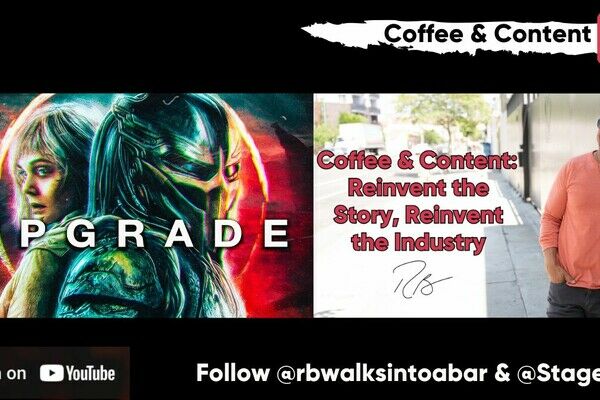
Coffee & Content: Reinvent the Story, Reinvent the Industry

Stage 32 Featured at the 43rd Torino Film Festival!

How Modern Franchises Became Our New Religion

Green Lights and Grey Areas: Expanding Creative Collaboration in Publishing

Insider Intel: 2026 Predictions

7 Life Hacks For Creatives
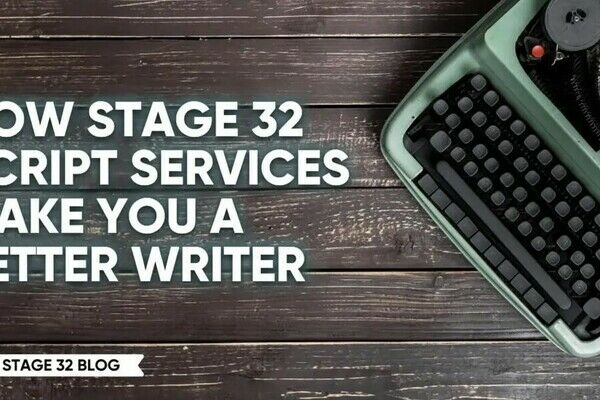
How Stage 32 Script Services Make You A Better Writer
